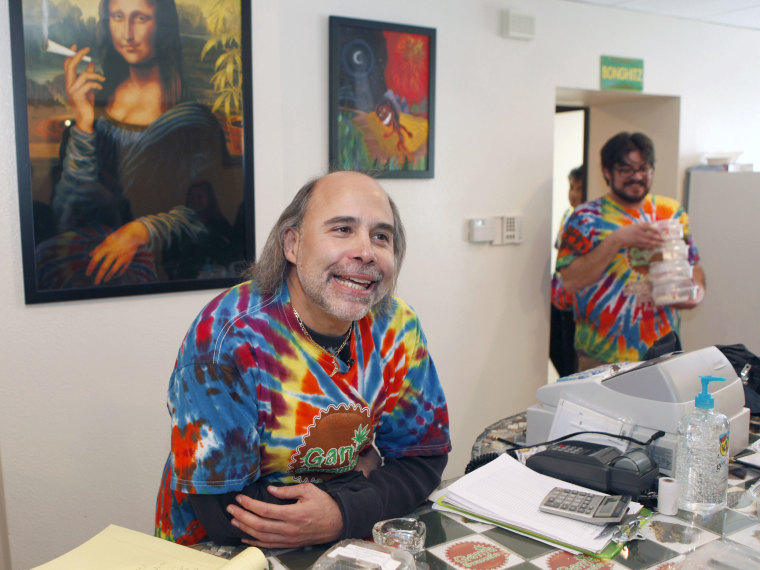Denver is already known as the "Mile High City," but thanks to a ballot initiative hitting Colorado this election cycle, the city may live up to its name in more ways than one.
Colorado joins the District of Columbia and 16 other states in the nation that allow the medical use of marijuana. But this Election Day, the Rocky Mountain state, along with Washington and Oregon, are prepped to take marijuana legalization one step further— to allow recreational usage.
Under Amendment 64, pot in Colorado would be treated much like alcohol, allowing the state to legalize, regulate, and tax small quantities of marijuana for adults over the age of 21. Mason Tvert, co-director of the Campaign to Regulate Marijuana Like Alcohol and who served as one of the architects of the Colorado amendment, compares marijuana prohibition to alcohol prohibition in the 1920s and 1930s, which he says was ineffective and led to a rise in organized crime.
“We are trying to get people to understand that marijuana is an intoxicating substance, like alcohol that millions of Americans choose to use and do so responsibly,” Tvert told msnbc's Chris Hayes Sunday. "We could be treating [marijuana] more sensibly by taking it out of the underground market, taking the money away from drug cartels and putting it toward more legitimate businesses. Coloradans and people around the nation are starting to recognize that this is a change that is very needed."
Public polling on legalizing marijuana has dramatically shifted in the last half century. In 1969, 84% of respondents in a Gallup poll opposed marijuana legalization compared to just 12% who supported it. Flash forward to 2010, and those numbers even out with 50% support for legalization, and 46% opposed.
As for Amendment 64, a Denver Post poll found that the measure's support stands at 48%, just ahead of the 42% who oppose it. Washington state's chance of passing a similar ballot measure is even higher with a 54-to-38% lead, polls show.
A bold Obama campaign political ad in the lead-up to the Democratic National Convention reflected the shift in public outlook on marijuana. The ad featured the cult-stoner film duo "Harold and Kumar" (actors John Cho and Kal Penn) sitting in a haze, surrounded by the half-eaten remains of a 7-11 munchies-heaven binge and receiving a call from President Obama.
Critics panned the ad for being hypocritical, and opponents to marijuana legalization argue that ballot measures adversely affect young teenagers, similar to the target-audience of those "Harold and Kumar" films. But according to the Center for Disease and Control Prevention, teen marijuana usage in the state actually went down between 2009 and 2011 when Colorado adopted medical marijuana. Colorado teen usage even dropped below the national rate, which rose during the same time period. The CDC also reported that the availability of drugs on school grounds went down 5% during that time.
California attempted to lock in marijuana legalization through a referendum that ultimately failed in 2010. Tvert, however, seems far more optimistic with Colorado's chance on Election Day.
“Ultimately what we’ve seen here in Colorado has been an ongoing discussion about marijuana, about the fact that it’s less harmful than alcohol,” Tvert told Hayes. “We’re at that point where people are ready to take that step. They are ready to move forward and take a more sensible approach.”
